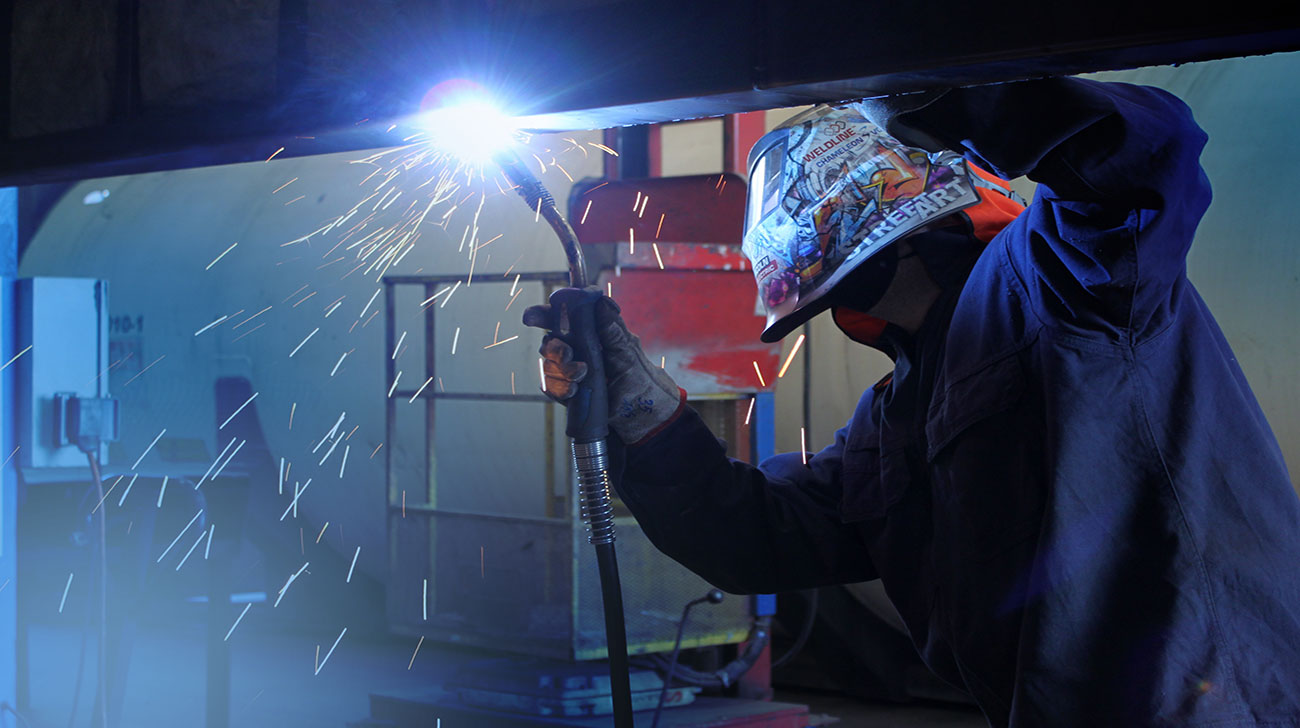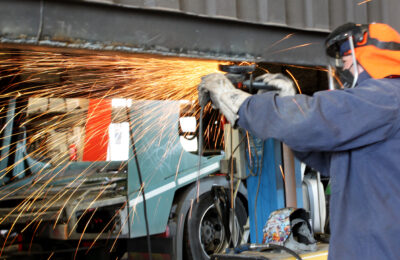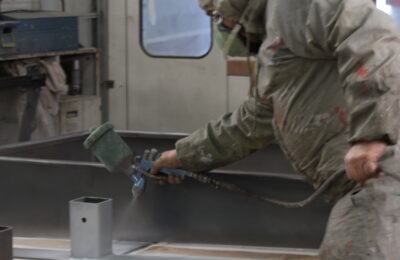
21 Oct What are the occupational hazards in the workshop and how do we avoid them
What are the occupational hazards in the workshop and how do we avoid them
In a workshop like Consman’s, several occupational hazards have to be taken into account in order to implement specific safety measures to prevent accidents and protect the health of workers. In this article, we will discuss the main occupational hazards present in a commercial vehicle repair workshop and the measures we take at Consman to minimise these risks and ensure a safe working environment.
These are the most common occupational hazards in the workshop
Slips and falls
One of the most common hazards in a machine shop is falls, which can occur due to slippery floors, cables, poorly positioned tools or lack of signage. To minimise this risk, we use safety equipment that protects the worker from slips and falls. This equipment includes anti-slip footwear and protections in risk areas, as well as constant vigilance in the correct cleaning and tidiness of the work areas.
Cuts and blows
Working with sharp or heavy tools increases the risk of cuts and shocks. At Consman, workers are provided with protective gloves specific to each type of hazardous tool, as well as body protection to minimise the risk of injury. In addition, regular training on safe tool handling is encouraged to prevent accidents.

Burns
Activities such as welding or using welding torches to fix parts can generate sparks that increase the risk of burns. To protect our workers, welding masks, fireproof gloves and special suits are used to prevent contact with sparks.
Exposure to paint fumes
Exposure to paint fumes is a major risk in paint shops. The fumes generated can be highly toxic if inhaled for prolonged periods of time. To avoid this, we have specialised masks that protect the respiratory passages of employees. In addition, painting work is carried out in specialised booths, where ventilation and air filtering significantly reduce the risk of inhaling hazardous substances.

Fires and explosions
The use of compressed natural gas (CNG) in vehicles adds an additional risk of fires and explosions if not handled properly. To avoid these risks, Consman’s facilities are UNE 13423 certified, which ensures compliance with the specific safety requirements for workshops working with CNG. In addition, staff are trained to work in explosive atmospheres and the facilities comply with the UNE 60079 standard, which ensures that the environment is prepared to minimise any risk of explosion.
We take workshop safety very seriously
The correct implementation of safety measures not only protects the health of workers, but also improves the efficiency of the workshop. By reducing interruptions due to accidents, the workshop can operate more smoothly and without incidents that compromise maintenance times. In addition, maintaining a strong safety culture builds team confidence and ensures that all work is carried out under optimal conditions.
Safety is a priority and a non-negotiable issue. Through the use of proper protective equipment, safety certifications and ongoing training, Consman’s workshop is ensured to operate with the highest standards of safety and professionalism. These efforts not only benefit the workers, but also the customers, who can trust that their commercial vehicle is in the hands of a trained and safe team.


No Comments